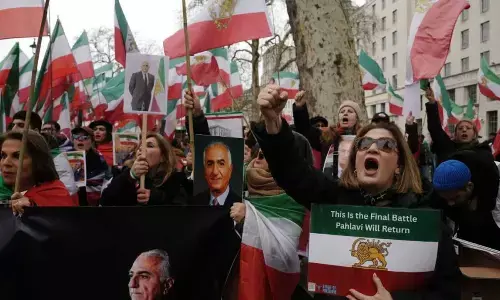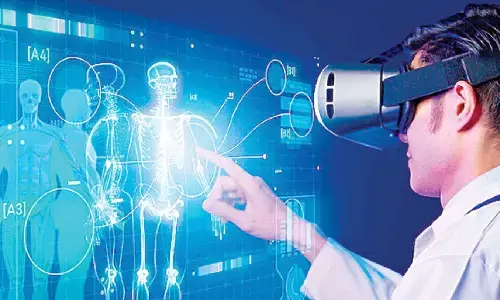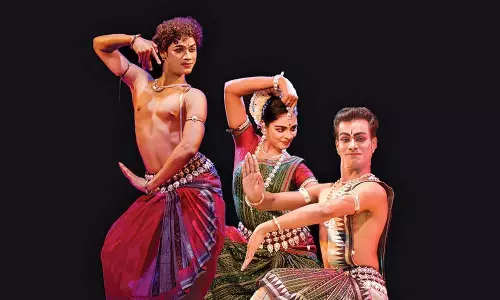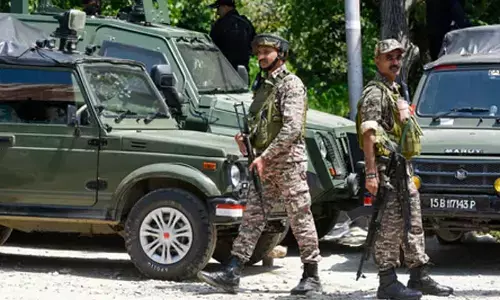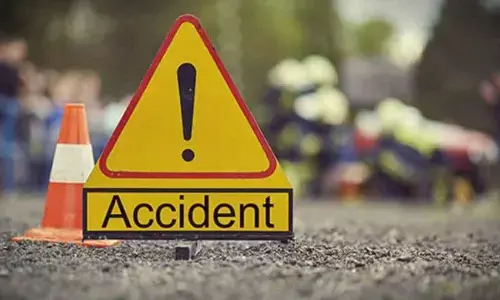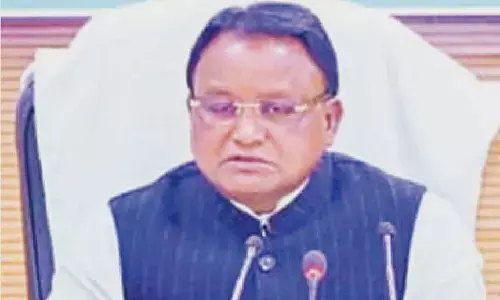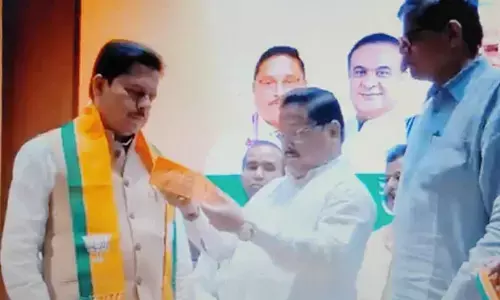Good policies need competent execution
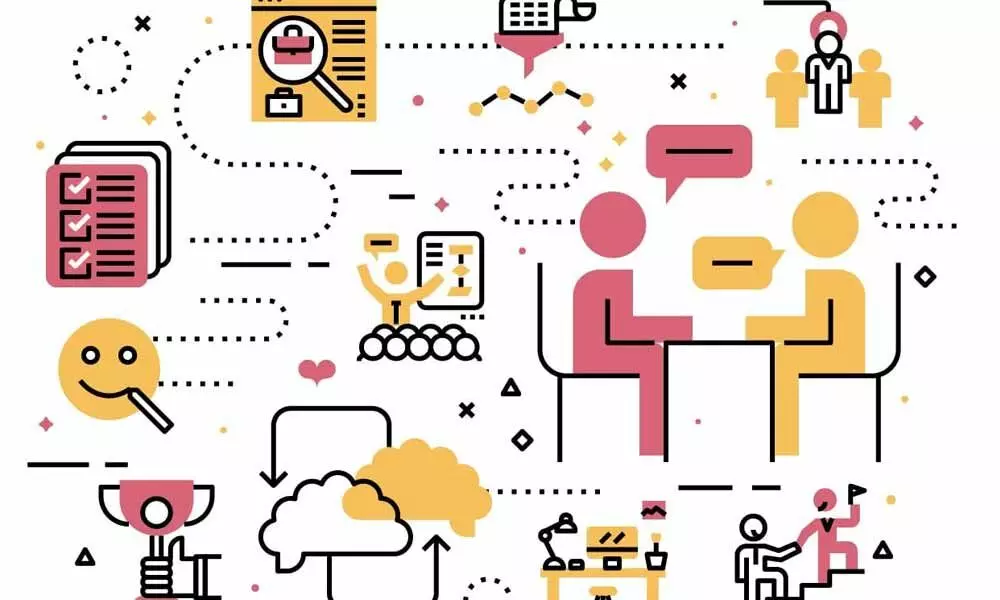 Good policies need competent execution
Good policies need competent executionIt is extremely thoughtful of the Modi government to designate the next phase of counter corona measures as Unlock 1 in which the basics of lockdown observance at the personal level and in the 'containment zones' remain unchanged but the focus is on the reopening of socio-economic life
It is extremely thoughtful of the Modi government to designate the next phase of counter corona measures as Unlock 1 in which the basics of lockdown observance at the personal level and in the 'containment zones' remain unchanged but the focus is on the reopening of socio-economic life.
This has created positivity in the environ and promoted self-confidence among people. The pandemic has tested policy formulation, raised questions on implementation and produced many lessons for the future governance. In a democratic dispensation, the elected political executive lays down policies that the machinery of the government implements top-down to take their benefits to the people. The function of implementation is always non political -- the political legitimacy of the policy is questioned, if at all, by the opposition in the Parliament and outside and reviewed by the higher judiciary in case the matter draws its attention.
The handling of the corona pandemic by the Centre under the NDMA was marked by the clarity of decision making in regard to the lockdown but the governance both at the level of ministries and the states was severely tested for execution of the policy. Lockdown did not impede 'essential' services. Considering governance to be the first 'essential' activity in a crisis, it was necessary that government functionaries in the field -- not only health workers and policemen -- got totally geared up to their new responsibilities and remained visible within the norms of social distancing.
Many administrative functionaries closer to the ground might have pulled away from work in the environ of fear all round which is understandable. It did appear, however, that the institutional importance of such key players in governance as district magistrates, station masters, managers of government hospitals, municipal commissioners and controllers of public distribution system, had been eroded over the long years, for multiple reasons. Corruption certainly was known to have undermined the nurturing importance of 'supervision' and taken away the will of the officials to exercise discretion at their level in serving a public cause. This was written all over the saga of migrant labour on the move with their families and the tales of tragedy that they produced. Senior functionaries on the ground had got so used to receiving orders from above for everything that they did not want to take the 'risk' of initiating any solution finding on their own.
Prime Minister Narendra Modi, having earned a reputation for bold, unambiguous and game-changing policy decisions, would hopefully see to it that the machinery for implementation of national policies was reestablished in the states and the districts. This has nothing to do with the centre-state political relationships. A major learning from the corona pandemic is that people-oriented governance had to be fully restored so that in situations that exposed the weak and the poor to sudden hardship, the local administration would respond with adequate empathy.
The countrywide total lockdown compelled by the corona pandemic became distressful for the less privileged in urban centres -- the city authorities should have sensed it and prepared themselves for the new call of duty. The reform of administrative machinery of India can begin with the Centre acquiring a role in the appointment of Chief Secretary and Director-General of Police of a state through the UPSC based empanelment -- a course that was recommended by the Supreme Court of India itself, in a recent ruling.
A lot of officials did try to do their bit, but the mishandling of the fallout of the lockdown also attracted attention. A few illustrations symptomised what was wrong in this regard. The manager of a government district hospital in Bihar refused to provide the available ambulance to shift a sick boy under treatment, to Patna Medical College -- half an hour away -- with the result that the boy died in the lap of the hapless rural couple in the hospital premises. This was reportedly not a corona case even. The state government tamely ordered an enquiry but the manager seems to be going scot-free. Again, whatever be the reasons for the turnout of migrants on roads with families following the declaration of the long lockdown on March 24, the question is how many collectors -- who were deemed to be the 'Kings' of their districts -- proactively got involved in micro-managing the stranded clusters within their jurisdictions for food, shelter and possible travel arrangements for them to be fixed in consultation with their own state governments?
A district magistrate in Maharashtra had, in his area, a very visible group of a score of exhausted migrant labour sleeping on the tracks -- perhaps under the impression that no trains were moving then -- and getting overrun by a goods train. The DM was seemingly unconcerned about what was happening in his district on the ground in the tense post-lockdown atmosphere. Photographs of 'rotis' strewn on the track highlighted the group's tragedy as well as poverty. The cabinet secretary ultimately reached out to many district magistrates as the crisis persisted -- the learning, however, is that India must go back to the districts for effective governance and public service particularly during a national crisis.
That the public distribution system had been thoroughly corrupted was known but even in the corona pandemic many needy were returned from food outlets empty handed on the grounds of non production of ration cards. Officials of the district could have exercised their discretion and accepted the distressed citizen's plea that the ration card was at his village home. How much food grain could have been swindled by these poor people? Ultimately, the Centre had to intervene to announce 'one nation one ration card' rule.
Municipal commissioners also should have actively evolved strategies for helping the distressed sections during the lockdown on rentals, food for stranded family groups and essential medical aid on-the-spot -- within the lockdown guidelines. This generally did not happen. It is a measure of India's culture of compassion that many voluntary bodies and religious establishments fed the hungry and the dispossessed -- this cannot be a substitute for the democratic state taking charge of all its citizens in an emergency.
Further, it would have been better if the Railway Board officials had -- after the Centre had decided to run special trains for migrants -- not allowed the matter of sharing of the cost of tickets to become public as this marred the effect of a humanitarian initiative of the Modi government. However, what is distressing is the apparent abdication of responsibilities by the station masters who were in earlier times looked upon as the highest authority on the premises of a station. The station master should be the first to know if there were any dead on a train that had steamed in -- the computation of such deaths should have been instantly communicated to the Railways centrally.
It is not known if the station master of Muzaffarpur appeared on the scene at all once the news broke out of a toddler pulling the shroud off his dead mother on the platform. The top leadership in any wing of the government has to feel accountable for the performance of its machinery down the line. This realisation was generally there in the Modi regime. However, there is no gain saying the fact that the country needs economic reforms as much as an upgradation of governance at all levels, including the state, district and the local.
A trend that developed fast was about the disequilibrium cropping up between the states on the implementation of post-lockdown guidelines of the Centre. Interstate movement was arbitrarily blocked -- sometimes for one upmanship -- in exercise of the authority deemed to have been delegated by the Centre. However, in the absence of detailed instructions issued in advance, unseemly traffic jams developed on the borders, the lasting image of which -- at least in one case -- was an apparent class distinction showing up between people in cars and those on bicycles coming in for work.
The first thing Unlock 1 has rightly done is to remove any conditionality on intra-state and inter-state movement of people outside of the containment zones. The Centre must ensure that this basic right of movement of citizens was not played with by the states. This is particularly important for the National Capital Region. Handling the corona pandemic was a non-political national mission directed by the Centre. Ambiguities in administrative responses, allocation of funds and inter-ministerial coordination coming to notice should be resolved -- on the trot -- as the Centre still has the prime responsibility of taking the arduous fight against corona to its logical conclusion both on health and economy fronts.
(The writer is a former Director Intelligence Bureau)


